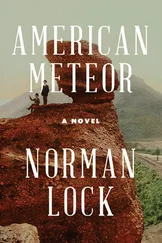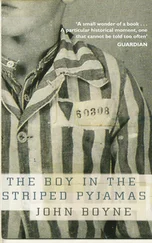Jim didn’t care for this trope, either. He preferred to avoid the quicksand of metaphysics, which I considered great sport. His mind was more straightforward, if kinked by superstitions.
“I want to try an experiment, Jim.”
He looked at me, his sad eyes full of suspicion and hurt. I knew he was thinking of the last experiment, when I’d tried to teach him to swim by shoving him off the raft. Contrary to my earnest expectations, he did not suddenly acquire the gift of flotation and, if not for a passing log fallen off a lumber raft, Jim would have gone straight to the bottom. He clutched, and I pulled him safely up.
“I want to see whether we might not have the power of resurrection,” I said.
“I saw Marie Laveau bring a frog back to life once,” he said.
I dismissed a frog as too low a creature to prove anything. I pointed, instead, to a dead cow, sailing belly-up on our starboard side, within reach of the boat hook, which I handed to Jim, his arms being longer and considerably stronger than mine.
“Just touch this to the belly of that poor beast. If my theory is correct, it’ll come straightaway to life.”
Jim did as I asked, even if he muttered some, while I held on to his pants with one hand and the lean-to with the other to ground the corpse in our miraculous energy. (A boy of the twenty-first century would have said force field. ) If I was right, we’d have plenty of fresh milk for our voyage. The cow, however, continued in the intractability of death. Jim looked relieved. Plainly disgusted, he swished the end of the boat hook in the water to rid it of corruption and evil spirits. The cow did stink.
Did I believe in evil spirits? Hard to say now. But I did believe in evil men, and women. I was impartial, generally speaking, in my low opinion of both sexes. I had only to think of Delilah and Potiphar’s wife. And in my experience, there was no more mean-spirited, foul-tempered, sharp-tongued harridan than pious old Miss Watson, who was a woman, of sorts.
I had no adequate theory to explain why the raft was able to travel through time. The water at the river’s source, Minnesota’s Lake Itasca, was also traveling into the future. For all I know, it may go on forever and, with it, the piece of river that had seized our raft and held us fast in timelessness. Do you think that’s a plausible explanation?
I know the river flows into the Gulf of Mexico! I don’t need you to give me a lesson in the geography of the Mississippi Delta. I got soaked to the skin with it. But the water — braiding and unbraiding for more than two thousand miles before finally entering the Gulf — doesn’t just stop. It goes on and on. Our raft, in that water, may have been a kind of time machine carried by a freak of nature ( singularity, to use a modern term) — an unrepeatable combination of circumstances — toward time’s distant unfolding, which it never reached because of the damned hurricane.
What is it now? You want to know if we slept.
Naturally, I’ve said as much. We slept in the ordinary way of men, or a man and a boy. Days alternated with nights, good weather with bad. Only in memory do the conditions of our life on the Mississippi appear uncommon. We may have been surprised, but in those days we accepted magic; we took miracles in stride. When we ventured onto land is another story, which sometimes appalled us. If all seems now to have been a dream, it is only recollection that makes it so. Would it have been a waste and a pity if it had been a dream? I, for one, have spent the best part of my life in dreaming and have profited by it. I’ve been cheered and uplifted — especially now, in the winter of my life. Even nightmares have something to tell us about ourselves. And inasmuch as dreaming is an aspect of human life, we ought not to reject it.
And if it had been no more than a virtual journey, well — what do you say? You’re a young man and have more experience with this sort of thing, although I’m deft at raising online maps from the swamp of data. You were born into the Digital Age, while I spent my formative years in the Age of Steam, which I miss. It had its familiars, gods, and avatars, such as the locomotive, the steamboat, the primitive automobile, as well as that most genial altar of the age: the old-fashioned cast-iron radiator, to replace the ancient hearth. For all its speed and efficiency, feats of memory and logic, the computer cannot warm you on a winter’s night and — its processes being invisible and all but silent — there’s nothing to see and very little to adore.
WE LEFT CAPE GIRARDEAU and the year 1851 behind, and next morning, not long after first light, we made New Madrid, at Missouri’s southeastern heel. I watched in fascination as Jim, leaning into the brightness of the newly risen sun, seemed to be eaten by it — first his head and then the balance of him, until he was nothing but an engulfing light — or so it seemed to eyes widened by the recent night.
“You look like a ghost,” I said, shifting my gaze because my eyes were stinging the way they will when you step out of darkness into daylight.
Jim was afraid of ghosts and all other tokens of the unseen, which to him was a teeming place fraught with menace. (It must be the same for a virologist.) He was a Christian, but his Baptist faith had become confused with voodoo, as practiced by old Mambo Laveau, who could animate the dead.
“Do you believe in ghosts, Jim?” I asked, to needle him.
“I do.”
I shivered to hear his voice, tremulous and thrilling, issue from the temporary dark. I recalled how Tom had scared poor Jim out of his wits by removing the mirror from Miss Watson’s chifforobe. When Jim came to make up the fire (his eyes, like mine now, nearly useless after chopping wood in the glaring sun), Tom began to moan hideously. He’d draped himself in a sheet and floured his face, and when he climbed through the mirror’s empty frame into Miss Watson’s bedroom, Jim fainted dead away. According to voodoo, mirrors are passageways between the living world and the next. At the time, I didn’t feel the least sorry for Jim, thinking it only right that someone ignorant enough to believe in the resurrection of frogs, in zombies, and in other perversions of sense should suffer the consequences.
New Madrid floated past us — that is to say, we floated past New Madrid, which the town’s boosters claim is the oldest American city west of the Mississippi. Maybe it is; I never bothered to check. A lifetime isn’t long enough to verify the countless truths of this world — not even a lifetime as long as mine. My eyes grown accustomed to the new light, I turned once more and looked at Jim, who had reassembled himself in the stern of the raft.
“Ever hear of the 1811 New Madrid earthquake?”
I took every opportunity to sound the depth of Jim’s ignorance; such is the cruelty of boys.
“No,” he said. Jim was smart, but he had no learning to speak of.
The water that rose in 1811 after the earthquake, flooding fields and streets all the way to the Gulf of Mexico — where is it now? Time, imprinted on its atoms, must have commingled with the Gulf, flavoring it with the past, before seeping to earth’s far corners. Much later, did a Fiji islander wash her clothes in antebellum Mississippi River water? Did a woman from Ceylon or Sicily? Did a kayak on Baffin Bay slip through water that had been stirred, centuries earlier, by the paddle wheel of a Mississippi steamboat? I seem helpless not to think about time, and what I had intended to be a simple story of Jim’s and my life on the river becomes more and more snarled in complexity.
Seeing a gaudy paddle wheeler near the opposite shore, I found my thoughts wandering to the pleasures of a journey by boat, instead of toiling aboard a raft. We did often struggle, Jim and I, no matter that we traveled in mythic time toward the future.
Читать дальше












